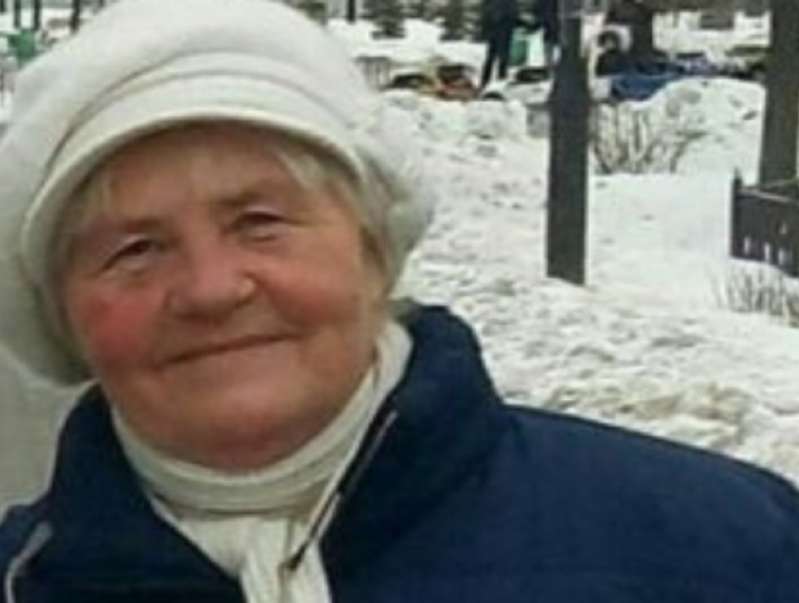Russian invaders sentence elderly Ukrainian woman to 12 years on ‘treason’ charges

A Russian-controlled ‘court’ in occupied Crimea has sentenced 66-year-old Halyna Dovhopola to 12 years’ imprisonment and a further year’s restriction of liberty. The country that illegally invaded and occupied Ukrainian Crimea charged a Ukrainian woman with ‘state treason’, claiming she had spied for Ukraine.
The ‘Sevastopol City Court’ reported that the sentence had been passed on 24 March, giving only the first initial of Dovhopola’s last name and calling her “a citizen of the Russian Federation”. Russia has made it next to impossible to live in occupied Crimea without taking its citizenship, but this in no way changes the fact that Dovhopola, who was born in Bakhchysarai in 1955, is Ukrainian.
As reported, this ‘trial’ only began a month ago, and was held behind closed doors, supposedly because there was material “constituting a state secret”. The ‘court’ claims it to have been established that Dovhopola “was recruited by a representative of a foreign state to work covertly for the Military Intelligence Service of the Ukrainian Defence Ministry. It is asserted that Dovhopola carrying out “intelligence tasks aimed at gathering information about a separate aviation regiment of the Black Sea Fleet, its call-signals and other information linked with radio communications. This is supposed to have included ‘state secrets, the passing on which could be used to harm the security of the Russian Federation”.
Everything about this case has been shrouded in secrecy, with the reason almost certainly that Russia did not want the elderly woman to receive proper legal help. Since 2014, the FSB has on many occasions effectively abducted Ukrainians and taken them to Moscow where the only ‘lawyer’ they see is one appointed by the FSB. Such lawyers are generally there to sign documents and try to persuade the detainee to admit to the charges, perhaps claiming that they will get a lighter sentence. The ‘trial’ on this occasion was registered on 4 February 2021, with the preliminary hearing taking place on 17 February. It is unclear whether there was more than one previous ‘hearing’, and therefore whether Dovhopola had been pressured into admitting to the charges.
There is every reason to doubt the charges and to fear that Dovhopola was deprived of all aspects of a fair trial. There would be no reason to insist on such a degree of secrecy had there genuinely been grounds for believing that the elderly woman was indeed working for Ukraine’s Military Intelligence. Russia is flagrantly violating the Geneva Convention and other documents of international law by applying its legislation on occupied territory, and the claim that a Ukrainian should have committed ‘state treason’ with respect to the Russian invading state in her native Crimea is obviously preposterous.
The charges were under Article 275 of Russia’s criminal code (‘state treason’) and carry a sentence of from 12 to 20 years’ imprisonment. Dovhopola has received the minimum, but the conditions in Russian prisons are so bad that this would, in any case, be an effective death sentence. The other reason for certainty that this was no real trial is that it was heard by ‘ judge Igor Kozhevnikov, a Russian citizen who was the presiding judge in the politically motivated ‘trial’ and 14-year sentences passed against Oleksiy Bessarabov and Volodymyr Dudka (see 14 year sentences for Russia to present Ukraine as the enemy in occupied Crimea
Judging by an interview Dovhopola gave to a Ukrainian website in May 2014, she and her adult daughter openly held pro-Ukrainian views. In March, the Russian soldiers who had seized control told her daughter that if she did not remove the Ukrainian media that she sold in the kiosk she ran that they would set it alight, with her inside. Understandably, she left for Kyiv with Dovhopola’s grandson who was then 9. Dovhopola herself said that she dreamed of being with them, but could not abandon her home in Sevastopol.
Dovhopola was one of at least four Ukrainians arrested soon after Russia released 35 Ukrainian political prisoners and POWs, mainly in exchange for MH17 witness Volodymyr Tsemach, whom the Kremlin wanted to keep away from the Dutch and Ukrainian prosecutors.
Her arrest was widely reported in Russian and Russian-controlled media on 29 November 2019. She was not named, but Dmitry Belik, a supposed Russian State Duma deputy from Sevastopol, claimed that she had been a civil servant working for the Black Sea Fleet. The report asserted that from 2016 to 2018 there had been six arrests of supposed members of sabotage groups (including citizens of Russia and Ukraine). They were, so this version went, supposed to have “gathered information about the Russian security service, units of the Russian defence ministry, the Black Sea Fleet and planned terrorist acts.” There were, in fact, around 10 men seized, with each of the arrests trumpeted on Russian propaganda channels, while being condemned by the international community (see Russia’s FSB needs Ukrainian ‘saboteurs’ in occupied Crimea – fictitious ones will do).
Russia uses arrests and ‘trials’ of Ukrainians to try to justify its occupation of Crimea, and it is quite likely that Dovhopola’s pro-Ukrainian views were the real reason for her arrest.





